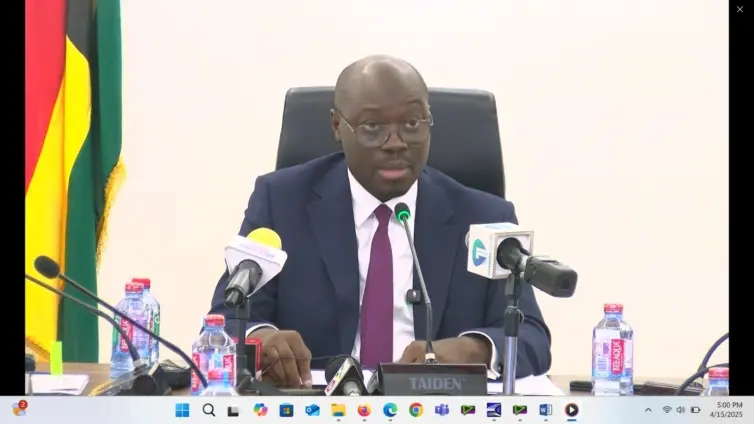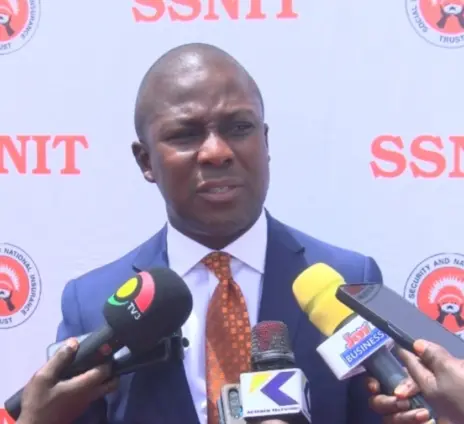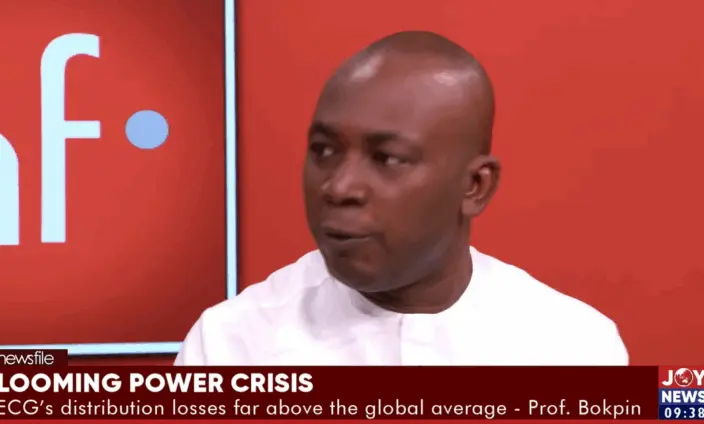The Electricity Company of Ghana (ECG) is facing a crisis, according to Professor Godfred Alufar Bokpin, a renowned economist. Speaking on Joy News’ Newsfile, Professor Bokpin raised serious concerns about the ECG’s inefficiencies, particularly its alarmingly high distribution losses. He emphasized that these **ECG losses**, hovering around 40%, are economically unsustainable and far exceed global averages. The implications of these losses extend throughout Ghana’s energy sector, impacting pricing, reliability, and the country’s broader economic vision.
“Even if you’re doing 15%, it is very high,” Professor Bokpin stated, underscoring the severity of the situation. “But 40%? That is simply not sustainable.” This article delves into the core issues and potential solutions discussed by Professor Bokpin, providing a factual overview of the energy crisis.
One of the most pressing issues is the high rate of distribution losses, which, as Professor Bokpin pointed out, are significantly above the global average. A loss of even 15% would be considered substantial, but the ECG’s 40% rate is crippling. These losses make it difficult to establish realistic pricing and ultimately burden consumers with higher costs.
Collection inefficiencies also contribute to the problem. According to Professor Bokpin, collection losses are around 15%, which is again above the world average. These inefficiencies further strain the financial stability of the ECG. “Collection losses are close to 15%. That’s again above the world average. It’s not sustainable,” he explained.
Tariff gaps and pricing challenges exacerbate the situation. The current pricing formula, Professor Bokpin noted, does not fully reflect actual costs. This discrepancy contributes to the financial instability of the ECG, making it difficult for the company to operate efficiently and effectively. “There are tariff gaps. The pricing formula does not fully reflect the costs. You cannot ignore that when you talk about viability,” he said.
The non-payment of electricity bills by government institutions is another major issue. Many government entities, including sensitive installations like educational institutions and police stations, consistently fail to pay their bills. The Minister has urged these institutions to take responsibility for their energy consumption, but the problem persists.
Professor Bokpin highlighted the absurdity of the situation with an anecdote: “Someone once asked me if I’d ever thought about where the ice blocks come from that pure water sellers use. They joked that it’s probably from police stations.” This anecdote, while humorous, underscores the widespread nature of electricity theft and non-payment.
To address these issues, Professor Bokpin advocates for private sector participation in downstream power distribution and revenue collection. He clarified that this isn’t about selling the ECG but rather about inviting private capital and efficiency while the government retains sole ownership. “We should all support government in some kind of private sector participation in the downstream distribution,” he urged. “This is different from saying we are selling ECG.” He believes that private sector involvement will bring much-needed capital and expertise that the state cannot provide alone, helping to mitigate **ECG losses**.
Professor Bokpin also stressed the need for fundamental reforms and honesty about the unsustainability of the current model. Structural reforms under the IMF-supported program require clear indicators to be met, and the government needs to communicate its plans clearly to Ghanaians. “We are at a point where we must be honest with ourselves. The current path is not working. We need bold reforms,” he concluded.
The **Ghana energy crisis** raises questions about the feasibility of the government’s vision for a 24-hour economy. Professor Bokpin questions how such a vision can be realized when the country struggles to maintain power for even an eight-hour cycle. He emphasized that the current system is fundamentally flawed and cannot support Ghana’s future energy needs. “And yet you have a government talking about a 24-hour economy. You are not even getting power for your eight-hour economy cycle, and you’re talking about 24 hours?” he observed.
Professor Bokpin’s stark warning about the ECG’s unsustainable losses paints a concerning picture of Ghana’s energy sector. The combination of high distribution losses, collection inefficiencies, pricing challenges, and non-payment by government institutions creates a flawed system. His call for private sector participation and bold reforms is a necessary step to address these deep-seated issues and ensure a reliable and sustainable energy future for Ghana. Addressing these **ECG losses** is crucial for the nation’s economic stability and progress.
Image Source: MYJOYONLINE





















